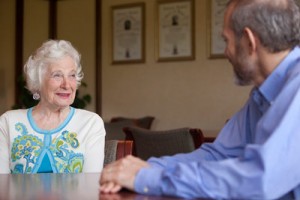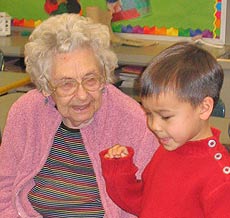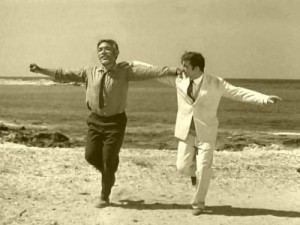In contemporary society, we don’t often ask our elders for advice. We’re much more likely to talk to professionals, read books by pop psychologists or motivational speakers, or surf the internet for solutions to our problems. In general (and for the first time in human history), we no longer look to our society’s oldest members as a key source of wisdom for how to live happier, healthier, and more fulfilling lives.
pop psychologists or motivational speakers, or surf the internet for solutions to our problems. In general (and for the first time in human history), we no longer look to our society’s oldest members as a key source of wisdom for how to live happier, healthier, and more fulfilling lives.
For a number of years, I’ve conducted a research project designed to tap the practical wisdom of older Americans. Using several different social science methods, I’ve collected responses from over 1200 elders to the question: “Over the course of your life, what are the most important lessons you would like to pass on to younger people?” I then combed through the responses, and the result was a book on lessons for living from the people I have called “the wisest Americans.”
As I look back over years of talking with America’s elders, 10 lessons stand out as those they would like to convey to young people. Read these “Top 10 Lessons for Living” and see how they apply to your own life.
1. Choose a career for the intrinsic rewards, not the financial ones. Although many grew up in poverty, the elders believe that the biggest career mistake people make is selecting a profession based only on potential earnings. A sense of purpose and passion for one’s work beats a bigger paycheck any day.
2. Act now like you will need your body for a hundred years: Stop using “I don’t care how long I live” as an excuse for bad health habits. Behaviors like smoking, poor eating habits and inactivity are less likely to kill you than to sentence you to years or decades of chronic disease. The elders have seen the devastation that a bad lifestyle causes in the last decades of life – act now to prevent it.
3. Say “Yes” to Opportunities: When offered a new opportunity or challenge, you are much less likely to regret saying yes and more likely to regret turning it down. They suggest you take a risk and a leap of faith when opportunity knocks.
4. Choose a mate with extreme care: The key is not to rush the decision, taking all the time needed to get to know the prospective partner and to determine your compatibility with them. Said one respondent: “Don’t rush in without knowing each other deeply. That’s very dangerous, but people do it all the time.”
5. Travel More: Travel while you can, sacrificing other things if necessary to do so. Most people look back on their travel adventures (big and small) as highlights of their lives and regret not having traveled more. As one elder told me, “If you have to make a decision whether you want to remodel your kitchen or take a trip—well, I say, choose the trip!”
6. Say it now: People wind up saying the sad words “it might have been” by failing to express themselves before it’s too late. The only time you can share your deepest feelings is while people are still alive. According to an elder we spoke with: “If you have a grudge against someone, why not make it right, now? Make it right because there may not be another opportunity, who knows? So do what you can do now.
7. Time is of the essence: Live as though life is short—because it is. The point is not to be depressed by this knowledge but to act on it, making sure to do important things now. The older the respondent, the more likely they were to say that life goes by astonishingly quickly. Said one elder: “I wish I’d learned that in my thirties instead of in my sixties!”
8. Happiness is a choice, not a condition: Happiness isn’t a condition that occurs when circumstances are perfect or nearly so. Sooner or later you need to make a deliberate choice to be happy in spite of challenges and difficulties. One elder echoed almost all the others when she said: ““My single best piece of advice is to take responsibility for your own happiness throughout your life.”
9. Time spent worrying is time wasted: Stop worrying. Or at least cut down. It’s a colossal waste of your precious lifetime. Indeed, one of the major regrets expressed by the elders was time wasted worrying abou things that never happen
10. Think small: When it comes to making the most of your life, think small. Attune yourself to simple daily pleasures and learn to savor them now.
For me, that last lesson is a great one to think about. Because of their awareness that life is short, the elders have become attuned to the minute pleasures that younger people often are only aware of if they have been deprived of them: a morning cup of coffee, a warm bed on a winter night, a brightly colored bird feeding on the lawn, an unexpected letter from a friend, even a favorite song on the radio (all pleasures mentioned in my interviews). Paying special attention to these “microlevel” events forms a fabric of happiness that lifts them up on a daily basis. They believe the same can be true for younger people as well – and it’s well worth a try at any age!
 Winona, 72, tells younger people that they need to be true to themselves, rather than trying to please everyone else.
Winona, 72, tells younger people that they need to be true to themselves, rather than trying to please everyone else.








